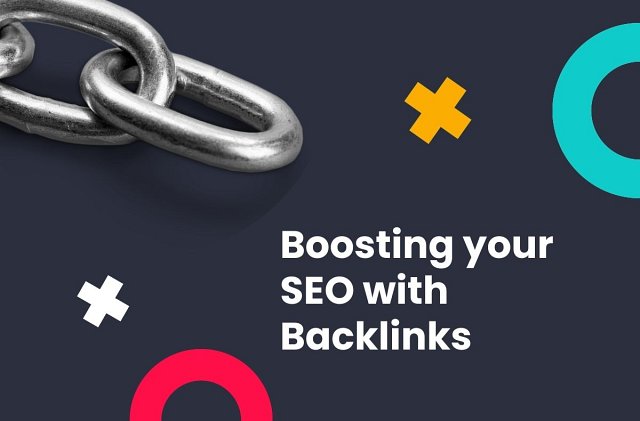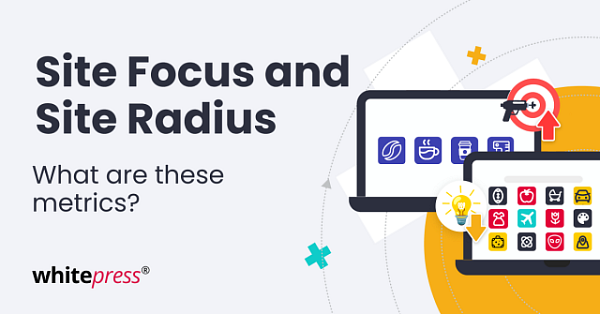(11 min. read)

What are backlinks?
Backlinks are simply links from one website to a page on another website. They are a crucial component of SEO (Search Engine Optimization), since they signal to search engines like Google that other websites vouch for your content.
When many credible sites link to the same website or page, search engines consider that content valuable, and therefore worth putting up higher on the search engine results page. Because of this, link building can have a tremendous positive effect on your website’s ranking position and search visibility.
Backlinks are gained as part of a link building strategy – a comprehensive process to earn links form other websites.
Why are backlinks important for your page?
Backlinks are considered one of the most significant factors used by Google and other search engines to determine the ranking on search engine results pages (SERPs). Search engines see each backlink as a “vote of confidence” for your content – if many sites link to the same web page, search engines see that the content is worth surfacing on their search engine results pages. They also make your site easier to reach for search engine crawlers, giving it context for proper indexing.
These backlinks can also increase your website referral traffic, as they expose more readers to your content. When users read other websites and find a link back to your site, they may follow it, bringing you additional traffic.
Backlinks from trusted websites can increase your Domain Authority (DA) and Page Authority (PA) – scores that predict how well your website and specific pages will rank on SERPs. The scoring system was developed by Moz and ranges from 1 to 100, calculated based on linking root domains, the number of total inbound links, ranking keywords, spam score, and other factors. Metrics that come from third-party tools (like DA and PA) don’t fully reflect Google’s algorithms. Use them more as hints than KPIs.
Please take into consideration that internal links are also an important element of search engine optimization – don't just focus on external links only.
How to get more backlinks to your website?
Building your own network of quality backlinks can be a challenging task, which is why we’re here to help. Not all links will positively influence your page ranking, and links that Google considers as spam (or otherwise undesirable) may even have a negative impact on your SEO. Google is getting better and better at detecting unfair link building practices, so make sure you’re not doing anything that would harm your site.
Getting new backlinks organically
By crafting useful and informative content, you can gain backlinks organically. People who enjoy your content might end up liking and sharing it, creating new incoming links and introducing your website to other viewers. If your content provides valuable insights and answers questions that people from your target audience are asking, other websites will naturally link to it as a helpful resource.
Research reports and data analyses are highly-linkable resources that journalists, bloggers, and other websites related to your industry might end up linking to – consider summarizing your data and making it public if you think it could be useful to the industry.
Building backlinks through outreach
Being proactive is the key to expanding your backlink profile. You’ll have to identify relevant, high-authority pages in your industry and pitch your content as a valuable resource worth linking to.
Search for online articles on topics related to your industry and brand – some may be lacking in information, and you can reach out to the author or editor asking if they would provide a backlink to your content, to give readers a better understanding of the issue.
Looking for broken links is also a worthwhile tactic, which involves finding websites with broken links to yours or your competitor’s content. Your goal is to reach out to the author or site owner to update the link with the working URL, or provide a link to your resources that cover the same or similar topic.
Also, any mention of your brand online that are unlinked are wasted opportunities for new incoming links. Reach out to website owners to add a link to these mentioned. Look for your brand mentions using tools like Google Alerts or the alerts tool in Ahrefs. They can occur in articles, blog posts, reviews, and in other online content. Once you find a mention without a backlink, you can reach out to the author or owner of the page, thank them for the mention, and ask if they would be willing to include a link to your website.
Finally, you can try guest blogging. Look for relevant blogs from your niche and reach out to the author whether they’d let you write a blog post for them on a topic that would be good to cover on their website, in exchange for linking back to your own site.
Link-building using sponsored content
Creating sponsored content and having it published on external sites is a reliable and effective way to build new backlinks and boost your website’s SEO performance, all while reaching to a broader audience. The process involves creating high-quality content that promotes your brand, product, or service, and paying to have it published on a high-authority website in your industry.
Content marketing platforms like WhitePress® connect publishers with advertisers, helping effectively promote your content. A professional copywriter, proficient in your industry, will create high-quality content for you, which will then be published on a high-authority website relevant to your industry.
A well-designed content marketing strategy can improve your backlink profile, adding to the overall SEO performance of your own site. Furthermore, it will also spread the word about your product, service, or brand, making your company more visible and recognizable online.
Getting free backlinks from online directories
Online business directories were once the #1 place to get large amounts of backlinks with little effort – all you had to do is provide your company details and a link to your website. Nowadays, however, Google employs more effective ways of preventing link spamming. Sourcing backlinks from low-quality online directories may end up harming your SEO, since Google can flag it as web spam.
Not all directory links are valued equally by search engines. Directories can still be a source of somewhat valuable backlinks – make sure a directory is relevant to your industry, is a reliable and trusted website, drives organic search traffic, and has a high Domain Authority before signing your business up. However, make sure you don’t build your whole backlink profile based on directory backlinks.
How to recognize high-quality backlinks?
When looking for valuable backlinks for your website, consider these factors to make sure you’re not sourcing low-quality inbound links:
- Relevance: the linking sites should be relevant to your brand or industry. If you run a gardening blog, for example, a backlink from a gardening expert’s site will be much more valuable than a link from a car repair site blog post.
- Quality: is the site you want to publish your backlink posting high-quality content? Pages with unique and informative content are more valuable than low-quality, duplicated, or thin content web pages.
- Authority: The more authority a website posting your backlink has, the more “link juice” it gives to yours. The Domain Authority (DA) metric is only available on Moz’s tool, but other SEO tools offer similar metrics. For example, you can check Domain Rating (DR) using Ahrefs Authority Checker for free. This metric is a useful tool for assessing your link building efforts, but don’t consider it the ultimate determinant.
- Traffic: Sites with significant organic traffic are more likely to be considered high-quality by search engines – plus, if a site generates a lot of traffic, a backlink from it can also direct some of that traffic to your site. For best results, aim for relevant websites with heavy organic traffic for your backlinks.
- Dofollow/
Nofollow: Only dofollow links pass ranking power to your site. Make sure all valuable backlinks are properly tagged as dofollow links, and all links that would potentially harm your SEO are tagged as nofollow links. - Anchor text: The clickable text of the hyperlink is also important. It should be relevant to the linked content, and ideally feature a keyword. Make sure that your backlinks are diverse – if you only use a single anchor text for all your backlinks, especially if it’s keyword-dense, Google and other search engines might take that as trying to manipulate visibility.
- Editorial links: Finally, external links that are placed within the content of a web page are generally more valuable than links in the footer or sidebar. Aim for your link to appear in the text whenever possible.
- Outgoing links: The more outgoing links a page has, the less value it will pass to each one. Ideally, you want to place your backlinks on pages that don’t feature many other external links.
Finding backlink opportunities
There are many ways to find backlink prospects online. You can start at identifying where your main competitors are getting external links – tools like Google Search Console, Ahrefs, SEMrush, Moz, or Majestic can help you perform a comprehensive competitors backlinks analysis with full backlink profiles that you can compare against yours. Look for sites that link to multiple competitors but not to you. These tools can also help you find broken links that might be good opportunities to reclaim.
Tools like Buzzsumo, Brand24, or Google Alerts can help you find brand mentions, allowing you to easily identify opportunities for adding external links to unlinked mentions. Once identified, you can reach out to site owners or authors/
You can also find valuable backlink opportunities at WhitePress® - we offer an easy way for brands to search and find websites willing to publish articles within their niche. We cooperate only with high-quality websites that boast high domain authority, sure to boost your page’s SEO with strong backlinks.
Verifying and analyzing your backlink profile
To understand how well-linked your site is across the web, you’ll have to perform a backlink profile analysis. This will show you potential areas for improvement and tell you exactly how effective your strategy is.
You can use Google Search Console for free to see which pages on your site have been linked to, and from where (you can check a maximum of 1000 links). There are also many paid alternatives to Google Search Console with expanded functionality. Ahrefs offers a free Backlink Checker, with full features locked behind a subscription.
SEMrush similarly offers a Backlink Analytics tool, where you can enter your website’s URL to get a detailed backlink report, including the number of backlinks, referring domains, and authority score.
Monitor Backlinks is another useful tool, allowing you to keep an eye on your backlink profile. The tool shows you new backlinks you’ve gained, old ones you might have lost, and overall changes in the status of your backlinks.
FAQ: Frequently Asked Questions about backlinks
What are backlinks in SEO?
In SEO, all inbound links (links from one website to a page on another website) are known as “backlinks”. They play a crucial role in optimizing your website – search engines like Google use backlinks as a signal of a page’s quality and relevance. The idea is that if many reputable and high-quality websites link to a certain web page, it must provide valuable content, and hence, it might be beneficial to show that page higher in search results. This is all a core part of Google’s original PageRank algorithm.
Can backlinks hurt SEO?
Yes, not all backlinks are good and can hurt your SEO if they are not managed properly. This is primarily due to Google’s ongoing efforts to provide the most relevant and highest-quality search results to its users – as part of this, the search engine aims to discourage practices that attempt to manipulate its algorithms unfairly. In the past, Google released updates like the Penguin algorithm specifically designed to target and penalize sites with unnatural backlink profiles.
If a significant number of your backlinks come from low-quality sites (spammy websites, irrelevant websites, or sites that violate Google Search Essentials (formerly Google’s Webmaster Guidelines), search engines could view this as an attempt to manipulate your site’s ranking, which could result in a penalty.
Are backlinks legal?
Of course – backlinks are completely legal. They are a normal and necessary part of how the web works, linking web pages together in a vast network. However, bear in mind that there are certain practices around acquiring backlinks that, while not strictly illegal, are against the guidelines set by search engines like Google. This includes paying for backlinks, excessive link exchanging, or using automated programs to create links, and can result in penalties to your Google rankings.
Are backlinks good or bad?
Overall, backlinks are good – they improve your website’s SEO performance, as they indicate that other sites find your content valuable and worth linking to. However, not all backlinks are created equal. While high-quality backlinks from relevant and trustworthy websites will contribute to improving your website’s rankings, low-quality backlinks for spammy or unreliable websites can harm your rankings.



